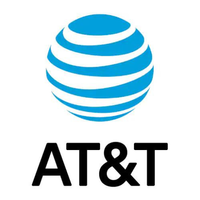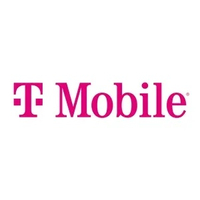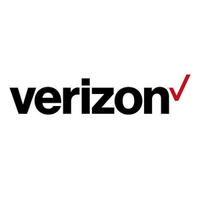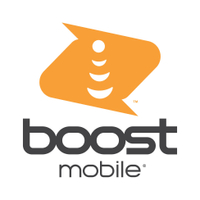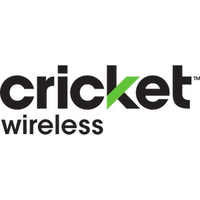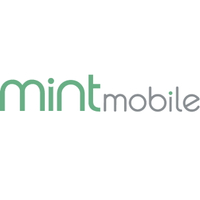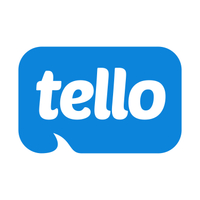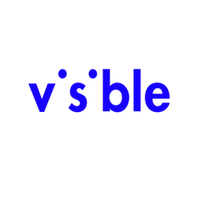Cell phone service for less — the cheapest plans we've found at each phone carrier
A government program that subsidized connectivity ended — these plans can keep your mobile costs low

Staying connected takes a big bite out of everyone's budget. But in lower income households, the cost of internet service can feel especially out of reach at a time when connectivity is increasingly important for school, work and the everyday necessities of life.
For a while, the Affordable Connectivity Program (ACP) offered a bit of relief in the U.S. Established in 2021, the ACP provided low-income households with $30 monthly subsidies for internet costs. While that typically meant broadband connectivity, more than a few ACP participants applied the subsidy to defray the costs of wireless phone service.
The Federal Communications Commission, which administered the program, says that 23 million households were enrolled in ACP as of February 2024, representing every county in the U.S. But funding for the program ran out in April, and with the current Congress unlikely to fund an extension, the FCC announced the end of the ACP at the start of June.
So where does that leave the people who have a hard time meeting the high cost of connectivity?
There are still programs out there looking to assist low-income households with broadband and mobile connectivity. For example, the Lifeline federal program subsidizes some of the cost of phone, internet and bundled services for households where the income is 135% or less than the Federal Poverty Guidelines, depending on the size of your household and the state where you live; you may also be eligible for the Lifeline subsidy if you're already enrolled in programs like Medicaid, SNAP and others.
While I can't speak to broadband programs, I have spend the better part of the last decade keeping tabs on the best cell phone plans for Tom's Guide. So I can steer people in the direction of low-cost plans, whether you relied on the ACP for lower-cost cellular service or not.
Tom's Guide lists the best cheap cell phone plans under $40, covering plans of different sizes including those with unlimited data. But even a $40 monthly payment may be out of the reach of some people, who still need to stay connected.
"It's an interesting time in in industry, with lots of change happening," said John Dwyer, the president of Cricket Wireless when I spoke to him recently. "With the ACP subsidy winding down... we want our company to provide solutions."
With that in mind, I decided to put together a list of the lowest-cost options I've spotted during my research into the best phone carriers. This isn't an exhaustive list by any means, as I am sure there are wireless providers out there with packages specifically crafted for low-income customers. Rather, these are the cheapest plans I know about from wireless carriers that I've covered — both major providers as well as mobile virtual network operators (MVNOs) that use other companies' cellular towers for their own low-cost service.
5GB data plan: $30/month @ AT&T
AT&T's cheapest plan comes through its prepaid service, and falls right in the middle of what rivals T-Mobile and Verizon offer in terms of cost. You can use AT&T's 5G service where available, and you can also use your data allotment for hotspot data. AT&T's plan is unique among major carriers in that unused data rolls over to the next month.
5GB data plan: $15/month @ T-Mobile
The cheapest plan from the three major carriers can be found at T-Mobile, where you'll pay $15/month for the same 5GB AT&T charges twice as much for. The catch is that once you use up your 5GB, that's it until the next billing cycle begins, or you pay T-Mobile to top off your account. You get 5G coverage with this plan.
15GB data plan: $35/month @ Verizon
Verizon's cheapest prepaid option is almost too pricey for me to recommend in this context. It starts at $45/month, though you can save $10 on your monthly bill by enrolling in autopay. What's noteworthy here is the large pool of data, and the fact that if you use up your 15GB allotment, you're not charged extra — Verizon simply slows down your speeds until the end of the billing cycle. As with the other carriers, Verizon's prepaid plan includes 5G coverage, though not its fastest Ultra Wideband 5G service.
5GB data plan: $15/month @ Boost Mobile
Boost matches T-Mobile's 5GB plan, right down to both its cost and the hard cap on 5GB of data use. Boost even uses T-Mobile's network for its coverage, though the Boost service also taps into AT&T's network as well as its own Dish network for service.
1GB data plan: $20/month @ Consumer Cellular
Consumer Cellular has a reputation for providing wireless service to seniors, though there's no age requirement for its plans. (AARP members do qualify for a monthly discount, though.) The cheapest plan at the service, which uses AT&T and T-Mobile for its coverage, costs $20/month for 1GB; paying an extra $5 each month boosts your data to 5GB.
1GB data plan: $15/month @ Cricket
Cricket's cheapest plan gives you 1GB of data for $15/month with nationwide 5G access on AT&T's network. (AT&T owns Cricket.) The only perk with this plan is 2GB of cloud storage. Upgrading to 5GB raises the monthly rate to $30.
5GB data plan: $15/month @ Mint
Mint offers some of the lowest rates of any carrier, though with a big caveat — you have to prepay in advance. Your first three months of the company's 5GB plan require a $45 payment, and to keep that low-rate, you then have to pay for a year of service ($180). That big upfront cost puts Mint out of reach for some people, but the T-Mobile-owned service does have very competitive monthly rates if you can take advantage of the discounts.
1GB data plan: $9/month @ Tello
Tello offers a multitude of low cost plans — including one with just talk and text but no data for $8/month. However, its cheapest plan with data will give you 1GB for $9. You can also opt for 2GB ($10), 5GB ($14) and 10GB ($19) options that keep your monthly costs under $20. Tello uses T-Mobile's network, and if you hit your data limit, you have to pay for additional data.
Free talk and text plan: $0/month @ TextNow
There's no lower price than free, and talk and text won't cost you a thing at TextNow. The company's entry level plan also includes free essential data for mail, directions and ridesharing services. Anything else and you'll have to pay, either by the hour (99 cents), the day ($4.99) or the month ($39.99). The service comes via T-Mobile's network.
3GB data plan: $19/month @ Ultra Mobile
Like Mint, Ultra Mobile is now owned by T-Mobile, and its lowest-cost monthly plan gives you 3GB of data for $19. You also have the option of paying for service in 3-month, 6-month and year increments, with the price dropping the longer you pay for. Buying a year of service also gives you access to a $10/month talk and text plan ($120 upfront payment). which includes a bare-bones 250MB data allotment.
2GB data plan: $10/month @ US Mobile
US Mobile uses either Verizon's network or T-Mobile's network to provide you with wireless coverage, and the cheapest plan at the carrier costs just $10/month for 2GB of data. (Pay an extra $8 and your allotment increases to 6GB.) The good thing abut that rate is that taxes and fees are included. On the downside, if you hit your data limit, you've got to reload your account.
Cheap unlimited data plans
We've focused on tiered data plans because they tend to be the more affordable option. But as our research into the best unlimited data plans has found, you don't need to pay big bucks to enjoy unlimited data.
One way to keep the cost of unlimited data down is to pay for service up front. Just like Mint Mobile's 5GB plan gives you the best rate when you pay for a year in advance, so does the unlimited data plan at the carrier. A full year of service costs $360, which breaks down to $30 a month. Right now, a promotion at Mint lowers the introductory rate to its data plan to $15/month for the first three months. You can use 40GB of data before your data is slowed.
AT&T has a lower ceiling to its prepaid unlimited plan — just 16GB — but its upfront cost is lower than Mint's too. You'll pay $300 for a year of AT&T's service, which translates to $25/month for unlimited data.
Not everyone can swing that big upfront cost. Here are the two lowest monthly rates we've seen for unlimited data.
Unlimited data: $25/month @ Tello
Tello's most expensive plan is still pretty affordable — you get unlimited data for just $25. Service is available on T-Mobile's network at full 4G and 5G speeds for the first 35GB; after that, your speeds will be slowed. You also get 5GB of hotspot data with this plan.
Unlimited data: $25/month @ Visible
Visible is a Verizon-owned service that only offers unlimited data plans. The cheapest of the two offerings costs $25/month and features unlimited hotspot data and access to Verizon's 5G network (though not the faster 5G Ultra Wideband service, which is only available to the more expensive Visible Plus plan). Your speeds can slow at any time should Verizon's network have a lot of traffic on the cheaper plan.
More from Tom's Guide
Sign up to get the BEST of Tom's Guide direct to your inbox.
Get instant access to breaking news, the hottest reviews, great deals and helpful tips.
Philip Michaels is a Managing Editor at Tom's Guide. He's been covering personal technology since 1999 and was in the building when Steve Jobs showed off the iPhone for the first time. He's been evaluating smartphones since that first iPhone debuted in 2007, and he's been following phone carriers and smartphone plans since 2015. He has strong opinions about Apple, the Oakland Athletics, old movies and proper butchery techniques. Follow him at @PhilipMichaels.
-
IKAL I used the info from the article for selecting a provider for my father in law who only uses the phone for calls so I went with TextNow. Turns out that the free text and call service they offer is quite misleading as the stock phone/text apps that come with your phone do not work with their SIM card and you have to install and use their own app for calls and texts. Their app is littered with ads (thus the free service), is confusing for older folks and is not localized (so good luck if English is not your primary language). I chatted with their customer service, seems like they intentionally do not volunteer the fact on their FAQ page that the stock call/texting apps are not usable with their SIM card.Reply
Would be nice to mention in the article if any of these providers' services work only with their own apps.
